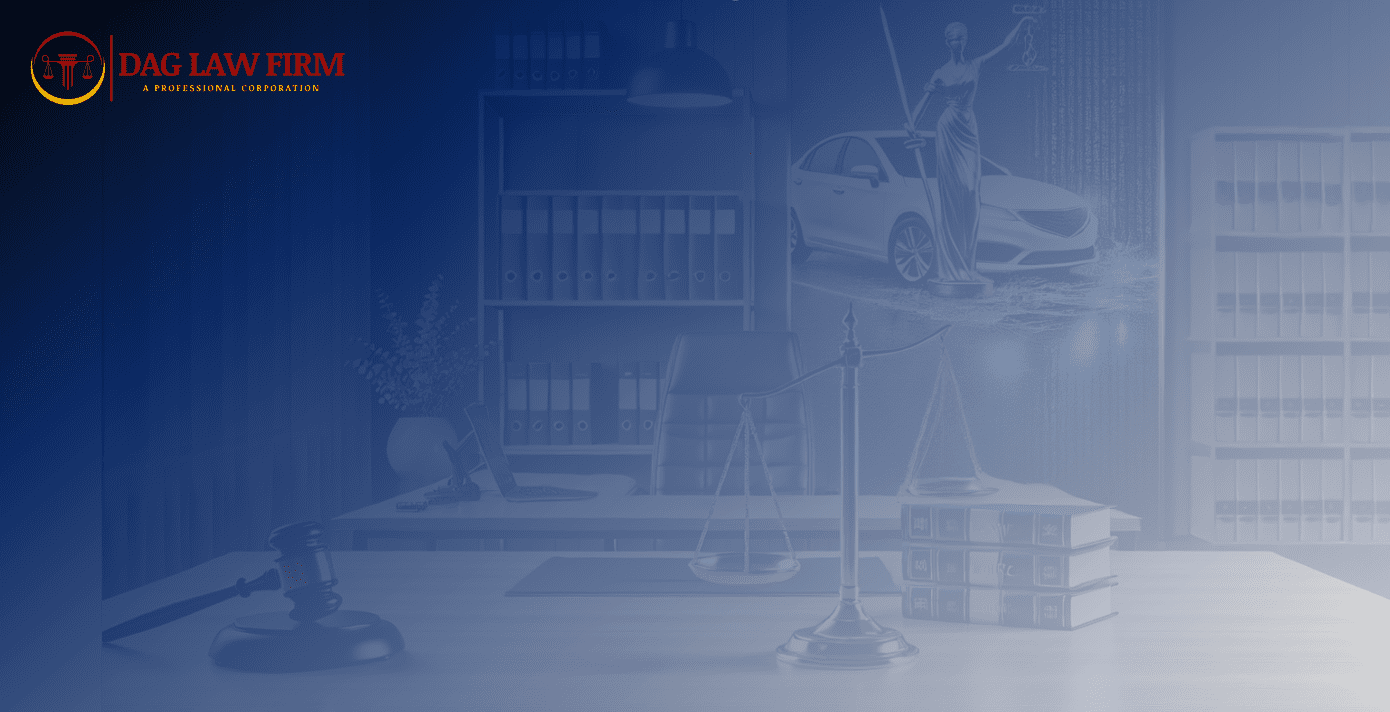Understanding Negligence in Personal Injury Claims
DAG Law Firm brings extensive expertise to handling personal injury and accident claims, offering unparalleled guidance, counseling, and securing financial compensation for our clients. With a deep knowing of the complexities involved, we provide personalized support every step of the way, ensuring you fully comprehend each aspect of the legal process. Whether you seek advice or action, count on us to represent your interests and address your distinct needs with unwavering dedication and diligence.
What Is Negligence in Personal Injury Cases?
Negligence is a fundamental concept in personal injury law. It refers to the failure to exercise reasonable care that results in harm to another person. In a personal injury case, the victim must prove that the defendant’s negligence directly caused their injuries. To establish negligence, four key elements must be present:
Duty of Care: The defendant had a legal obligation to adhere to a standard of reasonable care to avoid causing harm to others.
Breach of Duty: The defendant failed to meet the standard of care, thus breaching their duty.
Causation: The defendant’s breach of duty directly caused the victim’s injuries.
Damages: The victim suffered actual harm or damages as a result of the defendant’s actions or omissions.
Can You Waive Negligence in Personal Injury Cases?
While negligence forms the basis of many personal injury claims, it’s important to understand whether it can be waived or if there are exceptions. Several factors may come into play in such scenarios, including:
Assumption of Risk: If the injured party knowingly and voluntarily assumes the risk of certain activities, they may not be able to recover damages for resulting injuries. However, this defense must be thoroughly examined, as it is not absolute and may be subject to exceptions.
Contributory Negligence: Some states follow the doctrine of contributory negligence, where if the victim is found to have contributed to their injuries in any way, even minimally, they may be barred from recovering any damages. However, most states have adopted the comparative negligence approach, allowing the injured party to recover damages proportionate to the defendant’s degree of fault.
Statutory Limitations: In certain cases, statutes of limitations may prevent a plaintiff from filing a lawsuit after a specified period has elapsed since the incident occurred. It is crucial to be aware of these time constraints, as failing to file within the designated timeframe could result in the forfeiture of the right to seek compensation.
Seeking Legal Counsel
Navigating the complexities of negligence in personal injury claims requires comprehensive legal knowledge and experience. At DAG Law Firm, our expert attorneys are dedicated to ensuring that your rights are protected and that you receive the full compensation you deserve. When you turn to us for legal representation, you can expect:
Thorough Case Evaluation: We meticulously review the details of your case, examining any potential instances of negligence and exploring all avenues for seeking compensation.
Strategic Advocacy: Our attorneys leverage years of experience to build a strong case on your behalf, utilizing the most compelling evidence to demonstrate the defendant’s negligence and the impact on your life.
Timely Action: We understand the urgency of personal injury cases and work diligently to navigate the legal process efficiently, ensuring that your claim is pursued without unnecessary delays.
Schedule an Appointment Today
Don’t let negligence deprive you of the justice and compensation you deserve. Schedule a consultation with DAG Law Firm today and take the first step towards obtaining the resolution you seek.



